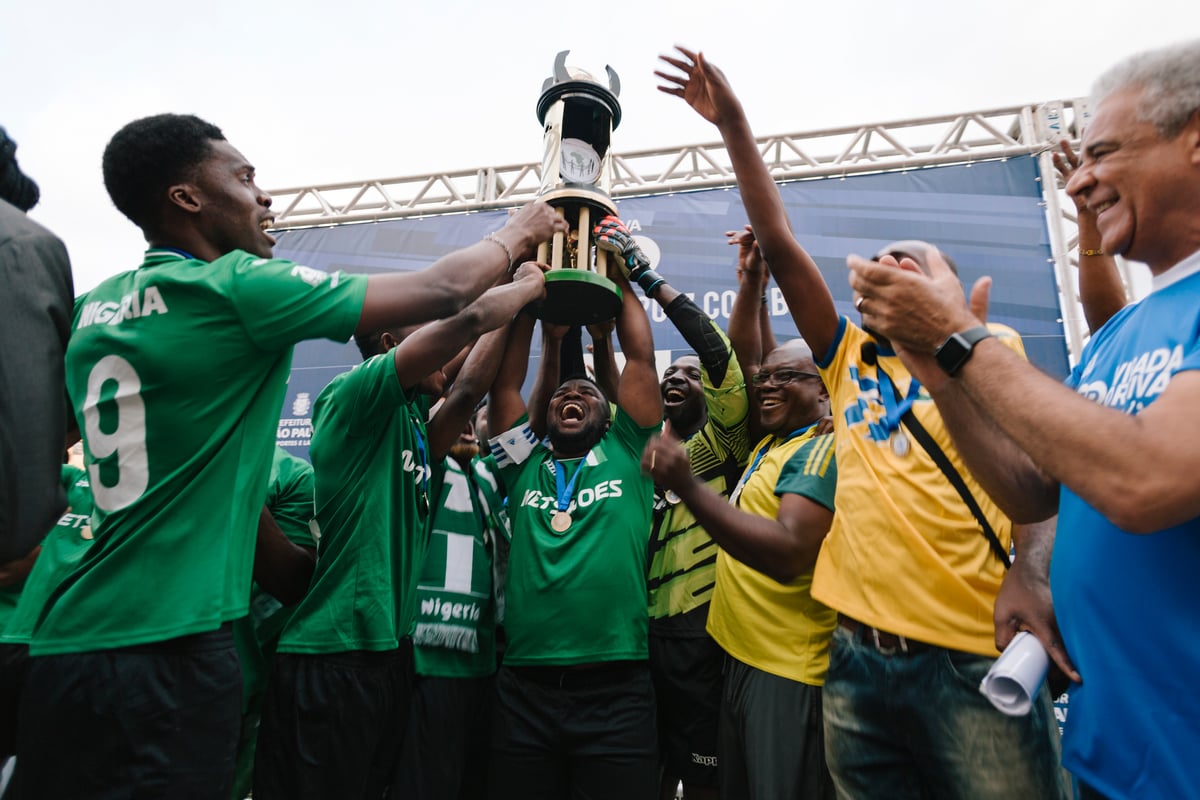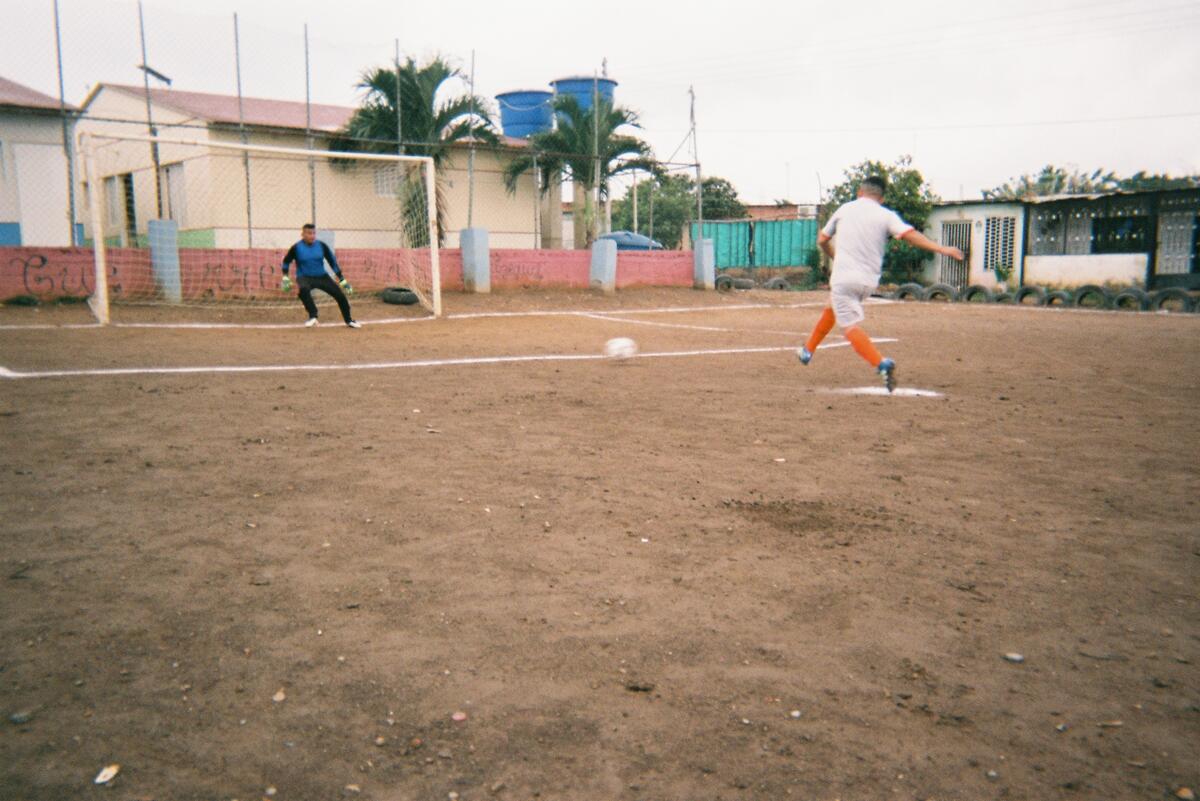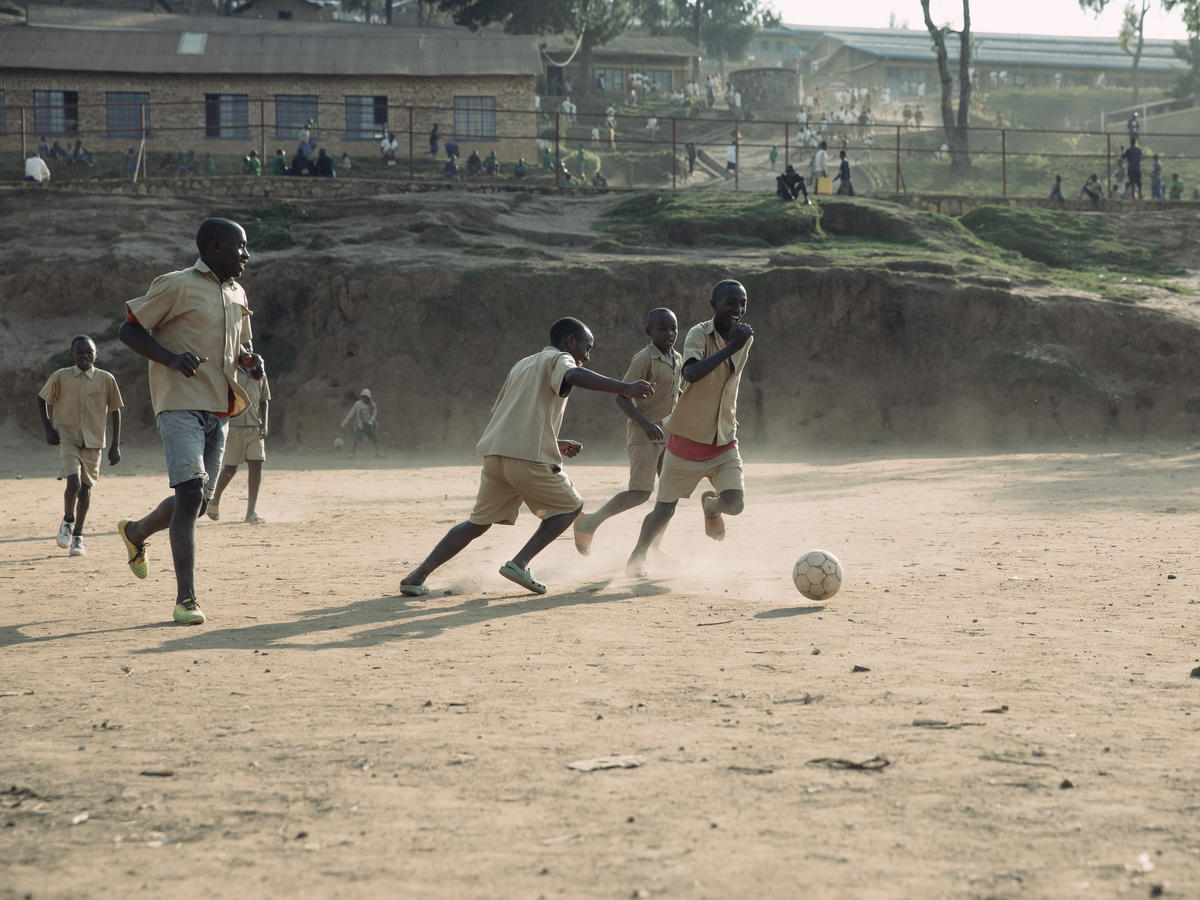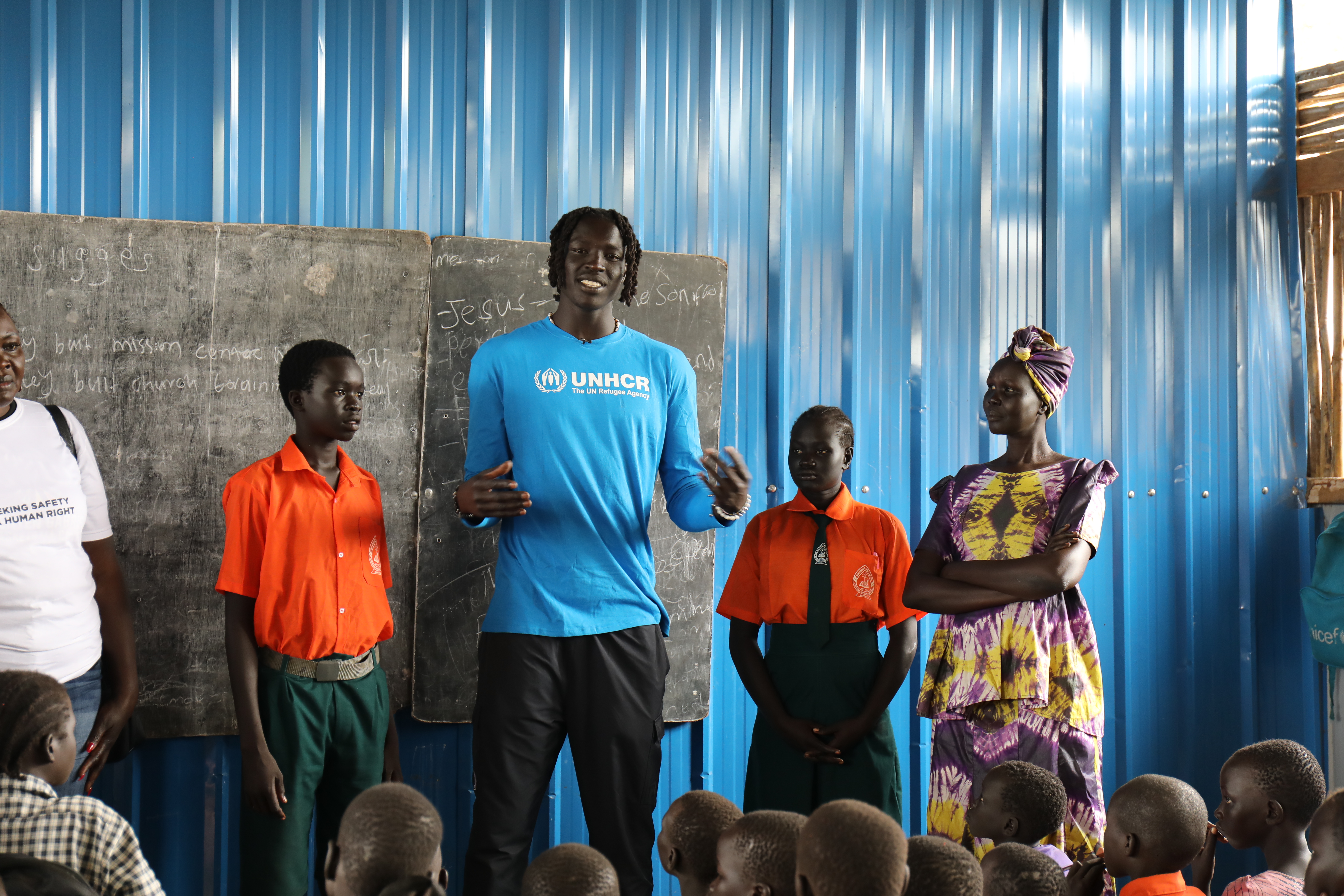Nigeria wins second Refugees World Cup title in Brazil

Nigeria wins second Refugees World Cup title in Brazil
SAO PAULO, Brazil - São Paulo’s Pacaembú Stadium, a venue used by some of Brazil’s top football clubs, hosted the final of the fourth Refugees World Cup last weekend. Nigeria defeated Morocco 9-4 to take the title for the second time.
The annual knock-out tournament, in which 16 teams took part, kicked off in the Brazilian city on 16 September and was played on three days over a nine-day period at three locations.
The competition, organized by UNHCR, the UN Refugee Agency, in partnership with the non-governmental organizations África do Coração, Cáritas São Paulo and SESC-SP, brought together some 250 players recruited from among Brazil’s refugee community. They played in their home countries’ national colours.
Brazil hosts more than 9,500 refugees from 82 countries. The Refugees World Cup is designed to help them integrate into their new country.
“When I came to Brazil I knew it would be difficult, but I also knew we had something in common.”
Virgilio Alfredo, captain of the Democratic Republic of Congo refugee team, knew he wanted to rebuild his life in the football-mad country after fleeing violence in his home country.
“I love Brazil because I love football,” said the 27-year-old, who played the sport professionally before arriving in São Paulo. “When I came to Brazil I knew it would be difficult, but I also knew we had something in common.
After arriving in São Paulo more than a year ago, Alfredo joined an amateur team, which has become like family to him.
Despite losing 1-0 in the first round to third-place finishers Guinea-Bissau, Alfredo and the rest of the DRC team were happy to participate in the tournament.
“The Cup is all about integration,” said Abdulbaset Jarour, Syria’s coach and one of the event’s organizers. “It’s about uniting people, no matter their race or religion. We want to show Brazilians we are good people.”
“This is a gesture to Brazil from the refugees they’ve welcomed to show that they want to integrate.”
Syrians have been received with an “open-door” policy because of the crisis in their country. Simplified visa procedures at Brazilian consulates in the Middle East allow those fleeing the conflict to travel to Latin America’s largest country, where they can then submit asylum claims.
However, Brazil has opened its doors to refugees from all countries, and football has become the universal language that brings them together.
“Brazil is known as football country,” said Maria Beatriz Nogueira, head of the UNHCR office in São Paulo. “But we want to show that there are a lot of other football countries too. This is a gesture to Brazil from the refugees they’ve welcomed to show that they want to integrate and that they really do speak the same language.”
When the Togolese team lined up to receive their uniforms on the first day of the competition, they held their country’s flag high above their heads as they danced to rhythms blasting from a portable speaker.
Players from other teams joined in, their laughter carrying across the field. Friends and family came along to cheer them on, some donning their team’s colours. Others showed their desire to speak Brazil’s language and proudly wore the host country’s colours of yellow and green.















